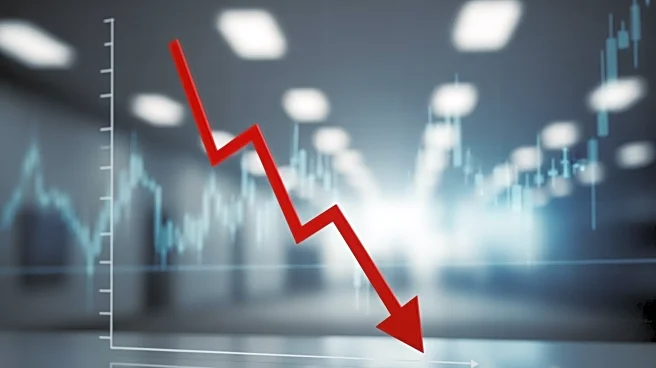What is the story about?
What's Happening?
China has intensified its export controls on rare earth minerals, adding five more elements to its list, now totaling 12. The country's Commerce Ministry announced that foreign producers must apply for export licenses if their products contain even minimal amounts of Chinese-origin rare earths or related technology. Defense organizations are excluded from obtaining these licenses, while semiconductor manufacturers will be reviewed individually. Exports for humanitarian aid are exempt from these requirements. China, as the largest producer of rare earth minerals, uses its position to negotiate with other countries, notably the U.S., which has recently threatened to expand restrictions on chipmaking equipment exports to China. Rare earth minerals are crucial for industries such as solar panels, electric vehicle batteries, chipmaking, and aerospace.
Why It's Important?
The tightening of export controls by China on rare earth minerals has significant implications for U.S. industries reliant on these materials. Rare earths are essential for manufacturing semiconductors, renewable energy technologies, and defense systems. The U.S. has been working to reduce dependency on Chinese rare earths, but the new restrictions could exacerbate supply chain challenges and increase costs for American companies. This move by China mirrors the U.S.'s Foreign Direct Product rule, which aims to limit chipmaking equipment exports to China, highlighting ongoing trade tensions. The strategic importance of rare earths in technological and defense sectors underscores the potential impact on U.S. economic and national security interests.
What's Next?
The U.S. may respond to China's export controls by further investing in domestic rare earth mining and processing capabilities. Companies like MP Materials and Noveon are already making strides in securing non-Chinese sources. Additionally, the U.S. government might explore diplomatic channels to negotiate with China or seek alternative suppliers from other countries. The ongoing trade tensions could lead to more stringent policies from both nations, affecting global supply chains and international relations. Stakeholders in the tech and defense industries will likely advocate for increased support to mitigate the impact of these restrictions.
Beyond the Headlines
China's export controls on rare earth minerals highlight the geopolitical significance of these resources. The restrictions could lead to a reevaluation of global supply chains and encourage countries to diversify their sources. This situation underscores the ethical and strategic considerations in resource dependency and international trade policies. Long-term shifts may include increased investment in sustainable mining practices and technological innovations to reduce reliance on rare earths.

















